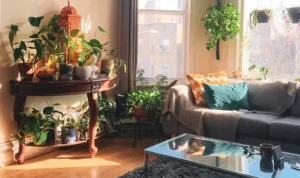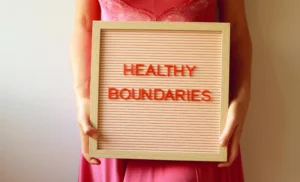You don’t have to explain your no. A boundary is enough
There is something deeply powerful about the word “no”. It is short. It is simple. And yet, so many of us struggle to say it—especially without guilt. We say yes out of obligation. We say yes to avoid disappointing others. We say yes because we’ve been taught to struggle that saying no is selfish, rude, or unkind.
But here’s the truth:
Every time you say “yes” to something you don’t want or. need, you are saying “no” to yourself.
In your 30s—or as you approach them—you start to realise that your time, energy and peace are too valuable to be given away without intention. I have personally experience this in my late twenties and have struggled to navigate this realisation. But boundaries, they are not barriers. They are bridges back to your truest self or in my case—an opportunity to explore this path.
Why Saying No Feels So Hard
We are conditioned to believe that being a good friend, partner, employee, or person means being available and agreeable all the time. Saying no disrupts that image. It feels like a rejection of others. But it’s really just an act of protection—for your energy, mental health, and emotional clarity.
Let’s be honest:
- You don’t have to go to every gathering.
- You don’t have to respond to every message right away.
- You don’t have to explain why you need rest or time alone.
You get to choose what fits your season, capacity, and values. And anything that doesn’t? It is okay to let it pass.
How Boundaries Align with Intentional Living
Intentional living isn’t just about what you add to your life—it is about what you subtract. Setting boundaries allows you to live with clarity, presence, and honesty. It means showing up fully—without resentment, without burnout.
By saying no to the things that drain you, you are saying yes to:
- Meaningful rest.
- Quality time with people who nourishes you.
- Space to reflect, recharge, and realign.
- Freedom from the weight of over-commitment.
Boundaries help you honour your limits. And honouring your limits is a deep form of self-respect.
Practical Ways to Start Saying No (Without the Guilt)
If you are not used to setting boundaries, it might feel awkward at first and it’s okay. Like any muscle, it gets stronger with practise.
Here are a few ways to begin:
1. Start With Gentle But Firm Phrases
You don’t owe long explanations. Try:
- “I appreciate the invite, but I can’t make it this time.”
- “I’m not able to take that on right now.”
- “Thanks for thinking of me, but I need to pass”
- “That doesn’t align with what I’m focusing on at the moment.”
2. Notice Where You Feel Drained
Take stock of what you often say yes to—out of guilt, fear, or habit. Ask yourself: Does this feel expansive or heavy? If it drains you more than it fulfils you, it is probably a no in disguise.
3. Practise Saying No Without Over-Explaining
You don’t have to justify or convince anyone of your boundary. “No” is a full sentence and so is “I’m not available.”
4. Remember That Discomfort Is Temporary
People may be surprised when you start honouring your needs. And that is completely okay. Some discomfort is worth the long-term peace that we long for. Your well-being is not up for negotiation.
By Saying No is Saying Yes to Yourself
There is quiet, confident power in choosing yourself. You’re not required to be available to everyone, all the time. Pleasing everyone isn’t your responsibility. And being “nice” shouldn’t come at the expense of being true to yourself.
When you say no with intention, you make space for the life you actually want—one that is aligned, intentional and honest.
A Gentle Challenge
This week, give yourself permission to say no once—just once—without guilt. Notice how it feels. Notice what it opens up for you.
And when you do, remind yourself:
Saying no doesn’t make me unkind. It makes me clear.
If this post resonated with you, I’d love to hear your thoughts in the comments.
What’s something you’re learning to say no to? What boundary are you practicing today?
And if you think someone in your life needs this reminder too—feel free to pass it on.




